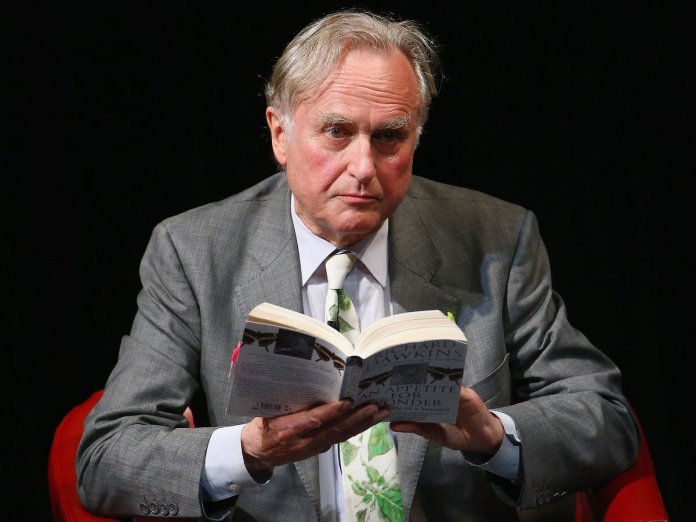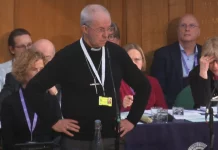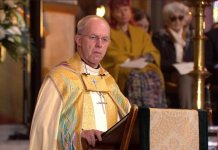“When you give up Christian faith, you pull the rug out from under your right to Christian morality as well. This is anything but obvious: you have to keep driving this point home, English idiots to the contrary.” (Nietzsche)
Richard Dawkins is now a self professing, “cultural Christian”.
Richard Dawkins is probably the most famous atheist of my lifetime. He is a noted scientist, author of the best-selling book, The God Delusion, and fanboy for many an ardent God nonbeliever. For more than 20 years, Richard Dawkins has provided millions with reason not to believe, and with an ammunition dump of rhetorical flares for dismissing theism, and especially Christianity.
“You know I love hymns and Christmas Carols. I feel at home in the Christian ethos. I feel that we are a Christian country in that sense”.
The new theism, like earlier thought movements and ones yet to come, arrived on the scene, peaked and is now crumbling. There will be devotees who will hold onto splintered rocks as they come hurtling down. Dawkins however, seems to have jumped.
Dawkins’ version of atheism seems to have changed tack, and in a positive way, or at least in this interview. He has left behind the stinging attacks and is gently embracing the world that Christianity has provided.
To some, Dawkins must have suffered a brain aneurysm.
Aaron Bastoni tweeted,
“Bizarre from Dawkins, who wrote a book called ‘The God Delusion’ claiming religion was a deeply malevolent, dividing force in the world.
Now he’s calling himself a ‘cultural Christian’? Find it odd to use religion to extend your secular political points.”
In comes Tom Holland, the super historian to the scene of the crime.
“Not really, because secularism & Dawkins’ own brand of evangelical atheism are both expressions of a specifically Christian culture – as Dawkins himself, sitting on the branch he’s been sawing through and gazing nervously at the ground far below, seems to have begun to realise.”
Holland is spot on. My initial response was this,
“Richard Dawkins wants to keep the fruit of Christianity while rejecting the beliefs of Christianity.
Of course that’s not logical or desirable. Nonetheless, is Richard Dawkins moving away from his past rhetoric and a priori assumptions?”
The fruit of Christianity, the ethics and architecture, the music and its role in shaping political theory and the marketplace, all have an origin story in the Bible and especially in the God-Man Jesus Christ. The fruit comes from somewhere and that somewhere is more audacious and stunning than 21st Century observers realise.
The claim of Christianity is that there is a God behind all the fruit we taste and eat and enjoy. He is not an error or grumpy old jack-in-the-box who loves to surprise us with horrible things.
Dawkins admits that the social good has an origins story and it is integrally tied to the Christian faith, although he is still unwilling to believe in the Divine.
“There is a difference between being a believing Christian and a cultural Christian”.
Yes, there is one who enjoys the fruit and gives thanks to the giver, and those who eat and have their fill while not giving thanks to the provider.
Dawkin’s admission is an intellectually and morally honest one. Read Holland’s, ‘Dominion’; or Glen Scrivener’s ‘The Air we Breathe’. For those who wish to press more eagerly into the bedrock that gives our culture form and substance, read Dr Christopher Watkin’s masterpiece, ‘Biblical Critical Theory’.
The beautiful and the good, the necessary and the true, haven’t altogether disappeared from our culture. And while these depend upon a God of such quality, excising God has not yet fully removed them from the scene. Chris Watkin notes,
“religious and theological ideas have not been threshed away from society, nor have they been abandoned in a general disenchantment. They have merely migrated within society, moving away from God and attaching themselves to other ideas and institutions (primarily the nation state) where their influence is still profound. “
Watkin develops what he calls, the ‘migration thesis’,
“For the migration thesis, secular late modernity relates to Christianity neither as an antithesis nor as a carbon copy but as a parody: “The city is a poor imitation of heavenly community; the modern state, a deformed version of the ecclesia; the market, a distortion of consummation; modern entertainment, a caricature of joy; schooling, a misrepresentation of true formation; liberalism, a crass simulacrum of freedom; and the sovereignty we accord to the self, a parody of God himself.
What all these instances of migration share is a desire to appropriate the goods and benefits of God while ignoring and excluding God himself, a move I have elsewhere called “imitative atheism.””
In other words, Richard Dawkins is admiring and eating the fruit of Christianity. He is happily tasting the sweetness and embracing the aromas and feeling the textures of the fruit, but he still denies the reality of the living tree from which the fruit has grown. The tree is no more dead or invisible than is the fruit we eat.
If you are looking for a ‘right now’ example of where both the root and the fruit of Christianity have been severed, look no further than Matthew Parris and his Easter edict in The Times. In ‘We can’t afford a taboo on assisted dying’, Parris says the unspeakable, euthanasia should not be limited to those with terminal and imminent death, but open to all who are a ‘burden’ on society.
“Let’s acknowledge and confront the strongest argument against assisted dying. As (objectors say) the practice spreads, social and cultural pressure will grow on the terminally ill to hasten their own deaths so as “not to be a burden” on others or themselves.I believe this will indeed come to pass. And I would welcome it.”
The elderly, the mentally unwell, the sick, and the poor, should all have death presented to them as a viable option, to stop their lives from being a burden to others.
“Often not for the final years of these extended retirements, often characterised by immobility, ill-health and dementia: and typically wildly expensive, cornering resources to fund our health and social care sectors. This imbalance helps explain governments’ desperate reliance on immigration — to the rage of electorates who won’t face the fundamental question: how are our economies going to pay for the ruinously expensive overhang that dare not speak its name: old age and infirmity?”
Parris is willing to throw away both the fruit and the tree. What remains? It’s every man for themselves. It is self-interest and self-preservation. He isn’t utilising the more carefully constructed argument of how euthanasia is an act of love for the sufferer. No, he preaches that those who weigh down society with cost and time and energy, are a problem to him and his own flourishing.
For all the double-speak about equality and human rights, the logical endpoint of secular humanism is mass selective death: death of the vulnerable, the aged and infirmed, for the sake of the fit and strong.
Australia’s Peter Singer has been singing this tune for decades, following his mate Nietzsche. He has been lauded in the halls of our ABC and presented as a voice to listen to. Universities pine for opportunities to hear him espouse his liberation to death sequence of ethics. And now, voices like Matthew Harris are deemed important enough to have their vision of death published in the United Kingdom’s most famed newspaper.
The irony of the timing. Easter has been and gone, but the reality of the Easter event remains constant and ever relevant.
God hates death and so should we. His Son endured death on our behalf. The resurrection of Jesus says that every human life has value. Death is a great enemy. How different is the Apostolic testimony to Matthew Parris. Which resonates more? You are a burden, so die! Or the words of the Apostle Paul,
“I declare to you, brothers and sisters, that flesh and blood cannot inherit the kingdom of God, nor does the perishable inherit the imperishable.Listen, I tell you a mystery: We will not all sleep, but we will all be changed— in a flash, in the twinkling of an eye, at the last trumpet. For the trumpet will sound, the dead will be raised imperishable, and we will be changed.For the perishable must clothe itself with the imperishable, and the mortal with immortality. When the perishable has been clothed with the imperishable, and the mortal with immortality, then the saying that is written will come true: “Death has been swallowed up in victory.”
“Where, O death, is your victory?
Where, O death, is your sting?
The sting of death is sin, and the power of sin is the law. But thanks be to God! He gives us the victory through our Lord Jesus Christ”. (1 Corinthians 15:50-57)
Going back to Dr Dawkins, perhaps we have entered a ‘watch this space’ moment.
We can only eat the fruit of Christianity for so long before the season runs out. Then, we will either go hungry and starve, or we will repent and return to the source and cry out to God for food to eat and enjoy.










